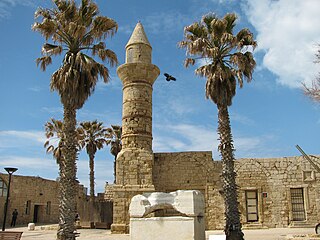Kopčić may refer to:
- Kopčić, Bosnia and Herzegovina, a village near Bugojno
- Kopčić family, a Bosnian noble family
Kopčić may refer to:
Do, DO or D.O. may refer to:

Like the surrounding Balkan countries, Bosnia and Herzegovina has had a turbulent past marked by frequent foreign invasions and occupation. As a result, Bosnian music is now a mixture of Slavic, Turkish, Central European, Mediterranean, and other influences.
Bosnian may refer to:

The Bosnian War was an international armed conflict that took place in Bosnia and Herzegovina between 1992 and 1995. The war is commonly seen as having started on 6 April 1992, following a number of earlier violent incidents. The war ended on 14 December 1995 when the Dayton accords were signed. The main belligerents were the forces of the Republic of Bosnia and Herzegovina, the Republic of Herzeg-Bosnia, and the Republika Srpska, the latter two entities being proto-states led and supplied by Croatia and Serbia, respectively.

Edin Osmić, better known by his stage name Edo Maajka, is a Bosnian rapper, record producer and songwriter. His popularity brought his group Disciplinska Komisija to the mainstream. He lives in Zagreb, Croatia, with his wife and children.
The architecture of Bosnia and Herzegovina is largely influenced by four major periods, when political and social changes determined the creation of distinct cultural and architectural habits of the region.
Vahid is the Persian, Kurmanji Kurdish and Bosnian variant of the Arabic masculine given name Wahid, meaning "The One", "Unique". People named Vahid include:
Berber or Berbers may refer to:

Ivan Ančić was a Croatian and Bosnian-Herzegovinian Franciscan and religious writer.

The assassination of Archduke Franz Ferdinand was one of the key events that led to World War I. Archduke Franz Ferdinand of Austria, heir presumptive to the Austro-Hungarian throne, and his wife, Sophie, Duchess of Hohenberg, were assassinated on 28 June 1914 by Bosnian Serb student Gavrilo Princip. They were shot at close range while being driven through Sarajevo, the provincial capital of Bosnia-Herzegovina, formally annexed by Austria-Hungary in 1908.
Zlata is a female given name of South Slavic origin meaning "golden". It is common amongst all South Slavic countries in the Balkans, such as Bosnia and Herzegovina, Bulgaria, Croatia, North Macedonia and Serbia. The name is popular in Bosnia because it is considered ethnically neutral amongst the three dominant Bosnian ethnicities: Bosniaks, Serbs and Croats. The name is derived from the South Slavic word zlato - from the Old Slavic root zolto (gold).

Bushnak is a surname common among Levantines and Saudis (Hejazis) of Bosnian Muslim origin. Those sharing this surname are the descendants of Bosnian Muslims apprehensive of living under Christian rule after the Austro-Hungarian occupation of Bosnia and Herzegovina in 1878, who immigrated to Ottoman Syria.
Kopčić is a village in the municipality of Bugojno, Bosnia and Herzegovina.
Vukasović is a Serbo-Croatian surname, a patronymic derived from the Slavic name Vukas, a variant of Vuk. Notable people with the surname include:
Malkoč-beg was an Ottoman Bosnian military officer, the first governor of the Croatian vilayet. He participated in the siege of Klis, and was later appointed as sanjak-bey of the Sanjak of Klis.
The State Intellectual Property Office of the Republic of Croatia is a government agency responsible for registration of patents, trademarks and design in Croatia. It was established in 1991, originally under the name "Republic Industrial Property Office" and then "State Patent Office". Since 1996, its name is "State Intellectual Property Office."
The Vranica massacre was the killing of 13 Army of the Republic of Bosnia and Herzegovina (ARBiH) prisoners of war (POWs) on 10 May 1993 by the Croatian Defence Council (HVO), during the Bosnian War.
Nikola Bijanković was a Croatian and Bosnian-Herzegovinian prelate of the Catholic Church who served as the bishop of Makarska from 1699 to his death in 1730. While being a bishop of Makarska, Bijanković also administered the dioceses of Duvno and Skradin under the Ottoman occupation.
The Kopčić family was a noble Ottoman Bosnian family that held possessions in the region of Rama, Duvno and Uskoplje.